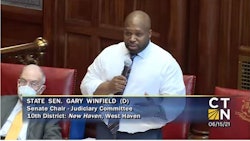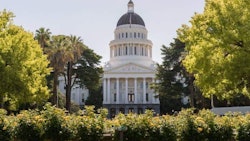
Nearly as quickly as delta-8 tetrahydrocannabinol (THC) seemed to enter the public sphere, states are taking action to control—and, in some cases, curb—its growth.
In late April, Hemp Grower reported that 12 states had already banned delta-8: Alaska, Arizona, Arkansas, Colorado, Delaware, Kentucky, Idaho, Iowa, Mississippi, Montana, Rhode Island and Utah. At that time, legislative bans were also being pursued in North Dakota, Alabama and Oregon.
RELATED: States Begin Implementing Delta-8 THC Bans
Since then, three more states have successfully banned the cannabinoid: New York, North Dakota and Vermont. (Officials in Washington have also interpreted the law to say delta-8 is illegal, though that ban is not enforced—more on that below.) That brings the number of states with delta-8 legislation up to 15.
As of June 21, these states have taken action against delta-8 and similar THC isomers since Hemp Grower’s last report:
New York: In May, the New York Department of Health (NYDOH) updated its regulations to clarify that hemp cannabinoid products sold in the state may “not contain synthetic cannabinoids, or cannabinoids created through isomerization, including [delta] 8-tetrahydrocannabinol and [delta] 10-tetrahydrocannabinol,” as reported by JD Supra.
North Dakota: State Gov. Doug Burgum signed House Bill 1045 into law in late April. The law redefines THC as delta-9 THC as well as any of its isomers, including delta-7, delta-8 and delta-10 THC. Products in the state may contain THC (including the aforementioned isomers) as long as all combined THC content remains under the federal limit of 0.3%.
Vermont: In late April, the Vermont Agency of Agriculture, Food and Markets posted a notice regarding the legality of delta-8 THC. “Is the Manufacture of Delta-8-THC or its Use in Hemp Products Permitted under the Vermont Hemp Program? [sic] The short answer is ‘No,’” the agency writes on its website, clarifying that the state’s hemp rules ban the “use of synthetic cannabinoids in the production of any hemp product or hemp-infused product.” However, the notice also clarifies that producers may create distillates and isolates of hemp’s naturally occurring cannabinoids. (Because delta-8 is most often derived from cannabidiol (CBD) or delta-9 THC conversion, it is considered synthetic.)
Washington: Also in late April, Washington’s Liquor and Cannabis Board (LCB) issued a policy statement on THC compounds that are not currently specified in Washington law or regulations. “...[D]elta-8 THC, as well as derivatives, extracts, cannabinoids, isomers, and CBD isolate from hemp or other sources that are genetically or chemically altered into compounds may not be produced or processed in LCB licensed facilities, and may not be sold in licensed marijuana retail stores,” the policy states. However, this does not necessarily mean the cannabinoid is banned outright in the state. The LCB’s notice was only an interpretation of the law as it relates to the legal cannabis market. Further, the LCB later clarified that its statement was “advisory only.”
RELATED: Understanding Delta-8 THC: Where Does it Come From?
Pending Legislation
Other states are pursuing similar action on THC isomers. Some bills are still being considered by state legislators, while others have fizzled out. Here’s an update on current and previous pending legislation:
Alabama: The hemp industry dodged a bullet when an amendment that would have banned delta-8 and delta-10 production was removed from House Bill 2, which passed into law in late April. A similar amendment was proposed by lawmakers to the state’s medical marijuana bill, Senate Bill 46. The House Health Committee rejected the amendment, but the bill’s sponsor asked for the amendment to be tabled by the committee, according to Alabama Political Reporter.
Illinois: State Representative Bob Morgan introduced legislation that would require testing and labeling products containing delta-8 THC, CBD, and other cannabinoids before they can be sold or distributed, according to a blog post by Hemp Benchmarks. The state’s legislative session adjourned May 31 before the bill could pass.
Michigan: In late March, lawmakers introduced House Bill 4517, which would make it illegal to produce or sell delta-8 and any other THC isomers outside of state-licensed marijuana businesses. According to MLive, the bill would expand the definition of marijuana to include all types of THC, “regardless of whether it is artificially or naturally derived.” The bill is currently moving through the state legislature.
Oklahoma: Senate Bill 1033, recently signed into law to update medical cannabis laws in the state, had at one time included provisions to define delta-8 and delta-10 as “marijuana.” However, the law passed without that provision, making the THC isomers unregulated for now in the state, according to Cale Law Office.
Oregon: House Bill 3000, which is moving through the state legislature, would authorize the Oregon Liquor Control Commission (OLCC) to regulate artificially derived cannabinoids, which includes delta-8 THC. The bill also helps clarify and define “adult-use cannabis,” “artificially-derived cannabinoid” and THC.
Texas: Some interpretations of House Bill 3948 indicated Texas was taking aim at delta-8 and other similar THC isomers by banning the sale of consumable hemp products that contain synthetically derived cannabinoids. However, the state’s legislative session ended May 31, leaving those isomers unregulated in the state for now.

























